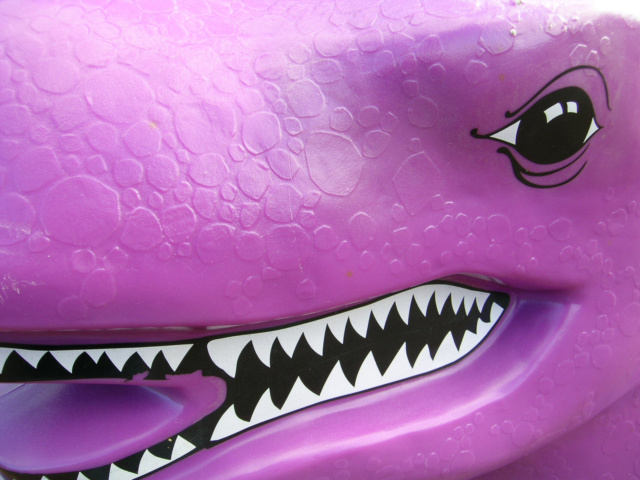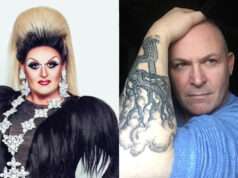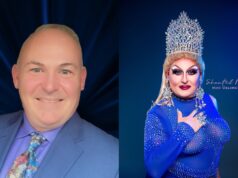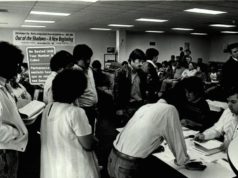
I spend my working life educating young millennials on the virtues of diversity, cultural understanding, gender equality, religious freedom and the idea that all human beings should be protected from hateful rhetoric, and literal and ideological violence.
Now, I’m finding that even my love life (or lack thereof) will likely be spent fending off overt racism from my fellow marginalized LGBTQ peers. Of course, racial-minority queer people quickly become accustomed to being ignored and fetishized, but the blatant and outright bigotry of Trumpism feels like I’ve entered into an ironic, Orwellian reality-show version of 1956 southern America.
An example of racial microaggression IRL
While eating my pancake breakfast at a well-known diner Nov. 9, still in despairing shock at the election results, I overheard four older gentlemen heralding the “return of proper American values,” when everyone “knew their place,” and “boys were boys and girls were girls,” and “homos did their business behind closed doors.”
I was shocked, not because I didn’t know this rhetoric existed, but because, where once was restrained tension mitigated by a post Civil Rights-era social contract that this kind of flagrant bigotry needed to be left in 1964, it was instead replaced with outright, flagrant disdain on parade in 2016.
After about 15 minutes of this kind of dialogue, interspersed with mundane comments about the weather, I made eye contact with one of the men. He half smiled, a gesture that was simultaneously guilty yet defiantly aggressive.
Microaggressions intensify on dating apps
As a black queer man, I’ve faced my fair share of microaggressions and microinsults. Some have been for my race (oldies but goodies like: “You speak very well,” with the unspoken ending of that statement an obvious “for a black person,” or, “You don’t act black,” to the bolder, more overt: “Sorry, I’m not into black guys”). Then some have been for my sexuality (“Don’t you just love shopping?”).
More often than not, I get an all-too-familiar radio silence when sending a friendly “hello” to a potential match on one of the many soul-sucking dating apps available to introverted, overworked and socially lazy millennial daters like myself. However, since Trump’s rise to the throne, the rejection I’ve experienced has become increasingly more pointed, violent and decisively venomous.
A quick story from the digital dating trenches: One “gentleman,” upon issuing him a friendly greeting in a popular dating app, responded with, “I don’t have to technically pretend like I would go out with a black guy anymore because diversity is dead. Make America great again and have a nice day!” I laughed audibly at first, thinking he was being ironic, so I responded with a hearty “LOL” … then I waited.
Nothing. No “lol” in response, no witty repartee or friendly non sequitur to a less awkwardly racist “what kind of movies do you like”-type conversation. Just radio silence, filled with ominous shadows and silent darts. He was done, and, in those two short sentences, I was reduced to an outmoded notion of dead diversity; an outdated relic of Obama’s culturally empowered America.
‘Cultural Stockholm syndrome’
It’s not a secret for many queer men that the gay community can be notoriously insensitive to racial disparity and often vehemently denies the importance of sexual racism or racial bias in attraction, despite research to the contrary.
For example, an Australian study found that 64 percent of men stated it was acceptable to indicate a racial preference on a dating website, and 46 percent stated these preferences didn’t bother them. Some research suggests that, for both heterosexual and queer dating apps, as much as 89.9 percent of dating preferences are for white people by black, white, Asian and Hispanic daters. However, the alliance of some gay men to conservative and often condemning political ideologies or racist or sexist sentiments aren’t anything new (particularly in Midwestern or rural America where larger concentrations of closeted queer men struggle to inhabit their identities).
In social psychology, we would chalk this up to a sort of cultural Stockholm syndrome where the oppressed (gay men, in this instance) prefer to identify and align with the historical oppressor (straight, masculine, often-white men) in an effort to regain some ideological power and, as such, gain more social capital. This is theoretically the reason many gay men desire “straight-acting” partners, a feature of internalized homonegativity.
Shadowboxing continues
Microaggressions and microinsults have become the source of much ridicule; a supposed invention by the academic liberal elite and their overly sensitive millennial college student children to shame people into rigid political correctness. But for me, these concepts are helpful in leading others to understand the experience of marginalized, disenfranchised or disempowered human beings. Maybe, as one white Trump-supporting cyber-dater said to me, after I confronted him when he questioned whether I was fully black because I wasn’t “as thuggish as most black guys he’d met,” he suggested I should just stick to other minorities. That way we can all complain together and maybe we’d feel more “seen” (then he proceeded to block me, as though that digital act erased my marginalized outrage and anger).
So I’ll keep shadowboxing, hoping that my boxing gloves can sustain the increasing hits to my everyday life (and now my dating life) while lending support to my fellow boxers, marginalized and allies alike.
Together, we’ll make it through this episode of The Apprentice: POTUS.





















